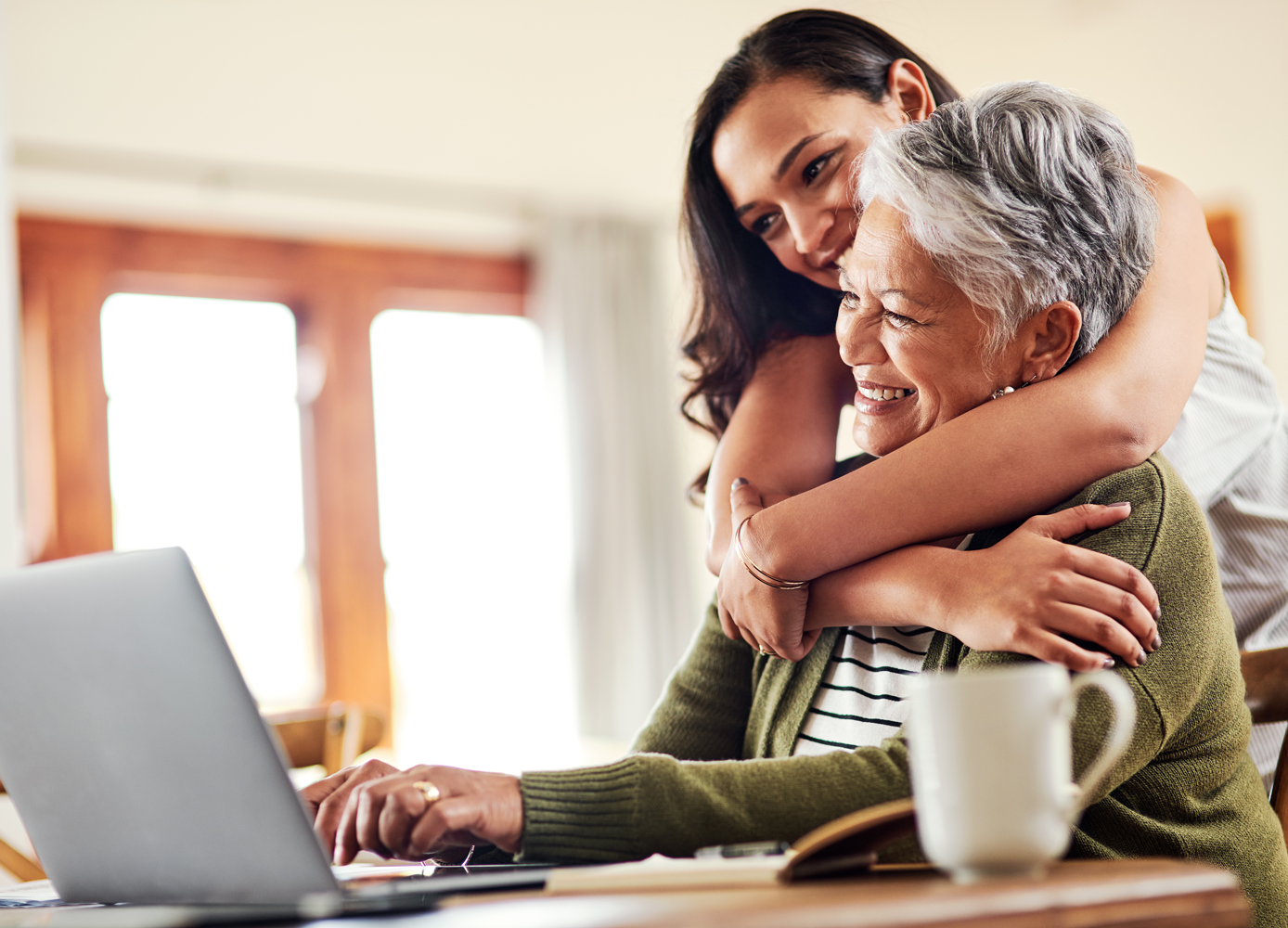Loneliness and social isolation can make you sick, but friends can help keep you well
By Wendy Haaf
Photo: iStock/vgajic.
When Sheila Kerr moved to a new city so her husband could get the extended medical care he needed following a stroke, she quickly set about cultivating new friendships to replace some of the relationships she’d had to leave behind. It was a smart decision.
Life transitions such as retirement, relocating, and losing a spouse are risk factors for loneliness, which research has linked to a number of mental and physical health woes, from psychological distress and depression to high blood pressure, stroke, impaired immune function, dementia, and even early death.
One study, which followed more than 12,030 people aged 50 or older over 10 years, found that participants who reported feeling lonely had a 40 per cent higher incidence of dementia than those who didn’t feel lonely. (Loneliness isn’t the same thing as being alone: some people feel satisfied with relatively little socialization, while others may feel lonely in a crowd.) On the other hand, numerous studies have shown that a network of strong, meaningful relationships is tied to higher levels of well-being, health, and longevity.
But as we age and leave the workplace, develop health problems or mobility issues, or lose friends or a partner through estrangement or death, our social circle often shrinks. Losing a spouse is particularly hard on men, notes Verena Menec, a professor in the Department of Community Health Sciences at the University of Manitoba’s Max Rady College of Medicine in Winnipeg and a researcher with an interest in social isolation and loneliness. According to data from the Canadian Longitudinal Study on Aging, roughly 10 per cent of people between 45 and 85 are lonely, but that number, Menec says, “goes up to 33 per cent for widowed men and 22 per cent for widowed women.”
Since a certain amount of change and loss is inevitable, it makes sense to start strengthening your social network before a crisis occurs. “If we sit and wait and we end up being old and feeling lonely, it’s almost too late,” says Ami Rokach, a psychologist and instructor at Toronto’s York University who has been studying loneliness for three decades. “It’s much better to prevent.”
For those who are out of practice at making new friends, that may be much easier said than done. So how can you go about initiating new friendships? Here are some pointers.
Reach Out
“If you want more good friends, go to those people you have some contact with and try to make one or two or three of them good friends,” Rokach suggests. For example, you might reach out to someone you already have something in common with—another grandparent on the sidelines of a grandkid’s soccer game or someone in your faith community—and chat to learn whether you share a hobby, a taste in movies, or even a love of tacos.
If there’s a spark, you can then connect on social media to get to know each other a bit better and see where it goes from there. Keep your expectations low and stay flexible; not every such contact will grow into a friendship. And keep in mind that regular repeated exposure is key to making a new friend: according to a study from the University of Kansas, two people need to spend 50 hours together to become casual friends and 200 hours to qualify as close friends.
Boost Your Confidence
“How you feel about yourself often determines your willingness to connect with others,” says John Oliffe, the associate director of research at the University of British Columbia’s School of Nursing and the founder of the school’s Men’s Health Research program. Sadness, low mood, and sagging self-esteem can make even getting out of the house seem like too much effort, and that kind of withdrawal can feed into a further downward spiral. So add these to the list of reasons why it’s important to make activities that bolster your confidence and mood a regular part of your self-care routine.
And while the pursuits that yield this benefit obviously will vary from one person to the next, mounting evidence suggests that for most people, regularly breaking a sweat can have such an effect. Oliffe says that many of the men he works with find regular physical activity helpful for easing depressive symptoms and even simply feeling a bit better about themselves. “Activity does boost mood,” he says, “and it might also be a way to become confident enough to connect with people,” whether within the activity itself or in other social situations.
Pursue a Passion
While opposites do sometimes attract and it’s great to have friends and family members with personalities and skills that complement our own, we tend to bond more easily with people with whom we have shared interests and values, so you’re more likely to find prospective friends in groups centred around an activity, cause, or pursuit you hold dear.
So make a short list of things about which you’re passionate and then look for clubs, organizations, and classes in your community that align with them. Sign up for a class or attend an introductory meeting or two.
Many people—men in particular—may find it easier to begin bonding while actively doing something together, rather than in situations specifically geared to sitting around and talking, such as coffee get-togethers and book club meetings. “If you say, ‘Let’s hit a few on the driving range,’ usually what we find is that there’s a bit of banter and guys start to genuinely get a bit of a connection over the activity,” Oliffe explains. “It’s not as if there’s pressure to talk. I think that really weirds a lot of guys out because it probably feels a bit forced.”
Lend a Helping Hand
Volunteering, whether to walk dogs at the local animal shelter, raise funds for a community project, or help a student hone reading skills, is a great way to facilitate social interactions, from brief, pleasant exchanges with one-time clients or visitors to getting to know fellow volunteers over weeks or months.
Volunteering can also help fill a void that life changes such as retirement can leave in their wake. For example, at Men’s Sheds (informal groups for men—there are currently 15 “sheds” in five provinces; visit menssheds.ca), members make items such as wooden toys and canes that they then sell to support local projects and organizations. “There’s a product and a process going on with those guys, and I think that helps, especially if you’ve lost some of the productive routine provided by a job,” Oliffe says.
The sense that others are depending on you can also make you more apt to follow through when you might otherwise let a meeting or shift slide, and the warm feelings generated by helping others will also motivate you to keep returning for future sessions.
Use Community Resources
If you’re reluctant to check out your local seniors’ centre because, after all, you’re not O-L-D, now might be a good time to reconsider your decision, particularly if your life is in a state of flux.
“We did a study here in Winnipeg, and it was interesting to see how seniors’ centres served a really important role for very difficult life transitions,” Verena Menec says. For example, “for people who became widowed, it was a place to go to take your mind off things and have interactions that could build into friendships.”
Neighbourhood amenities such as parks, libraries, and dog parks also facilitate regular, casual encounters that can sometimes blossom into friendships. A 2016–17 survey of older Canadians found that living near a park and visiting it frequently was tied to a lower incidence of loneliness; in fact, the combination seemed to have as powerful a protective effect as being married.
Focus on Quality
When it comes to preventing loneliness, the quality of relationships trumps quantity. “If you have a lot of people around you but can’t relate to anybody, you can be lonely,” Menec points out. “It’s about having someone you can genuinely confide in, talk to, and talk things through with in a genuinely reciprocal way,” Oliffe says.
“We don’t all need to be social butterflies and have huge networks,” Menec says, “but to have a few friends and cultivate those friendships as much as possible as we age.”
What can you do if you’re struggling with feelings of loneliness?
• Own up. “Because there’s a stigma to loneliness, many times we will deny that we are lonely,” says Ami Rokach says. (In fact, we may not even recognize that we’re lonely, but loneliness can be the root of difficulty sleeping, increased use of alcohol, and reluctance to accept social invitations.) “It’s very important to look at ourselves and say, Yes, I feel lonely. I long for more closeness,” Rokach says. “Once we identify this loneliness, we can do something about it.”
• Ask for help. Chatting with a therapist or a cleric may shed light on why we’re feeling lonely, Rokach says. “Are we too aggressive? Are we too shy? Are we simply not trustful of other people? There are many reasons, and once we find them, we can pursue self-development. For example, if I find I’m too shy, I can do some assertiveness training to learn how to connect with people.”
Similarly, if you’re depressed or you have social anxiety, it’s much more difficult, if not impossible, to simply drop by the local seniors’ centre or volunteer, Verena Menec says. If you suspect that’s the case, your doctor or a rep at your local public health unit may be able to refer you to an appropriate counselling program.






